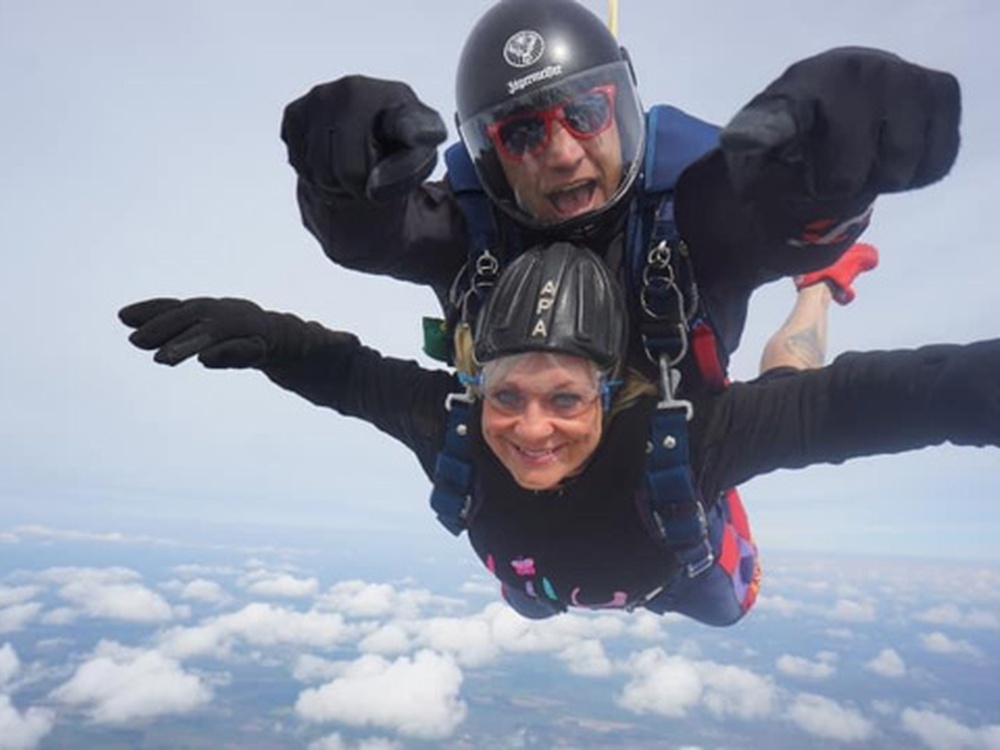“When you lose a child, you go through a range of difficult emotions – numbness, anger and heartbreak. You see other babies who remind you of yours and it’s unbearable. You ask yourself why yours was taken from you and wonder how life can be so cruel. We went through that not once, but twice. When I look back, I’m so grateful for the support of family and close friends who helped us through.
Coping with the heartbreak of losing a child
Our first daughter, Harriet, was just 18 months old when she died from mitochondrial disease in 1996. Six years later, her younger sister Kimberley succumbed to the same condition at the age of four. Back then, there was no proper support for people affected by mitochondrial disease. There was no information and we felt completely alone.
The medical teams did their best but they couldn’t give us the answers we so desperately needed. They explained that identifying the faulty gene was like searching through four dictionaries for a single letter, without even knowing which letter you're looking for. They put us in touch with a lady in her 30s who was living with mitochondrial disease, but understandably her experience was very different to ours.
After Kimberley’s passing, we had no choice but to carry on. Thankfully we had our son, Guy, who was a year older than Kimberley and didn't have mito. He gave us a reason to keep going, however every time he fell ill I was consumed with panic, fearing the worst.
Discovering The Lily Foundation and finding hope
It wasn't until 2018 that I discovered The Lily Foundation, thanks to a friend who had also lost a daughter to a mitochondrial disorder. At the time, there was a lot of buzz around the charity thanks to Jamie Theakston’s sponsored walk. Inspired by this, I decided to support their work through a Facebook birthday fundraiser.
Initially, I set my target at £150, but donations poured in, quickly doubling my goal. So I jokingly said that if I hit triple the target, I'd do a skydive. To my surprise, the donations soared to nearly £600 and I found myself gearing up to leap out of a plane!
My family thought I was mad, but I was determined to go ahead. The fear of jumping out of a plane was nothing compared to what my girls had endured. A colleague decided to join me, and soon the challenge gained momentum. I worked for Bath Rugby at the time, and the team rallied behind me. Some England players even promoted the event on social media, leading to some generous corporate donations. In the end, we raised over £20,000.
The BBC picked up the story and we made the headlines on the local news. I was invited to speak at a fundraising dinner, which made me very nervous. Thankfully Liz, CEO of The Lily Foundation, supported me every step of the way.
Why support matters for mitochondrial disease families
Today, there's a lot more awareness and support for mitochondrial disease, much of it thanks to The Lily Foundation. They understand that a mitochondrial disease diagnosis impacts the entire family – not just parents but siblings too. Our son, Guy, was so close to Kimberley, yet there was no support for him. He had questions that we couldn’t answer, and no child should have to face such a loss on their own.
To anyone considering making that leap into fundraising, I say go for it! Whether it’s skydiving or something else, stepping out of your comfort zone is incredibly rewarding. It gives you a focus, and you can't beat the buzz you get when you realise what you've achieved. Life is short – tick that box on your bucket list, and make a difference while you’re at it!
Working towards a future with a cure
You can't support a better cause than fighting mitochondrial disease, and not just because of the people affected. The science behind our mitochondria has the potential to unlock breakthroughs in other major illnesses like cancer and dementia. This research has far-reaching implications, and every penny raised helps bring us closer to a cure.
My skydive was just the start; now that I work and volunteer for The Lily Foundation, I feel like Harriet and Kimberley are with me. I’m doing everything I can to raise awareness of mito, because it’s my way of keeping their memory alive and contributing to a future where no family has to endure what we did. Medical research has come so far in recent years, and there's every reason to be hopeful.”

